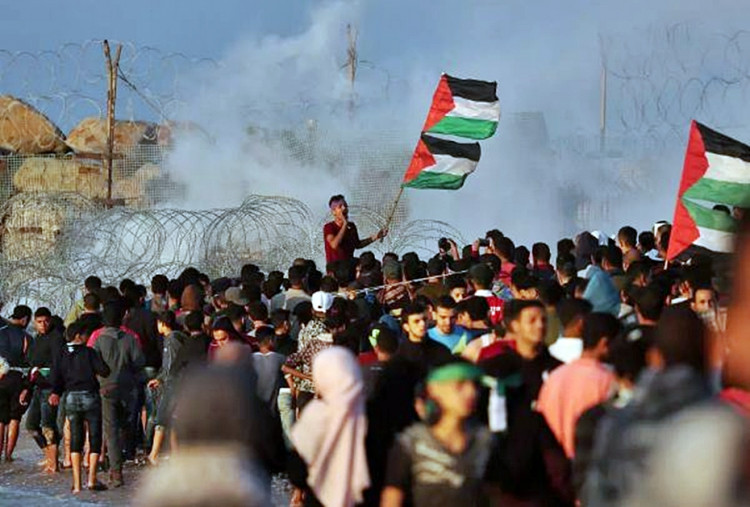The International Court of Justice (ICJ) in The Hague commenced a week-long hearing to deliberate on the legality of Israel's prolonged occupation of Palestinian territories. The sessions, which are set to unfold until February 26, were initiated following a request from the U.N. General Assembly in 2022 for an advisory opinion on this contentious issue.
Riad Mansour, representing the Palestinian stance at the U.N., implored the court to affirm the illegality of Israel's presence in the occupied territories, emphasizing the potential of such a judgment to foster a two-state solution and enduring peace. Mansour's emotional address highlighted the profound impact of the occupation on Palestinian lives and the broader regional stability, according to Reuters.
This legal inquiry occurs amidst a backdrop of escalating violence in the region, particularly in Gaza following the Oct. 7 incursions by Hamas into Israel, which has further entrenched the longstanding grievances between the two sides. The ICJ has been tasked with evaluating various aspects of Israel's actions in the occupied territories, including settlement expansions, alterations to the demographic and character of Jerusalem, and the adoption of discriminatory measures.
Israel, however, has opted out of the proceedings, articulating in a written statement its belief that the ICJ's involvement, predicated on what it perceives as prejudiced inquiries from the U.N. General Assembly, could detrimentally affect the peace process. The country has consistently challenged the characterization of the territories as occupied, citing their acquisition from Jordan and Egypt during the 1967 war rather than from a sovereign Palestinian state.
The ICJ's deliberations also touch on the broader implications of Israel's settlement activities, which have been a focal point of international criticism. These settlements are viewed by a significant portion of the global community as illegal under international law, a stance Israel disputes by differentiating between state-sanctioned settlements and others.
As the hearings progress, the international community watches closely, understanding that the ICJ's advisory opinion, though non-binding, could have far-reaching implications for the Israeli-Palestinian conflict and the quest for peace in the Middle East, as reported by CNN. The court's previous advisory opinion in 2004, which condemned Israel's construction of a separation barrier in the West Bank as contrary to international law, serves as a precedent for the potential impact of its forthcoming decision.
The Palestinian push for this legal examination forms part of a broader strategy to engage international legal mechanisms in addressing Israel's conduct, intensified by the ongoing conflict in Gaza. As the ICJ considers the complex legal, political, and humanitarian facets of the Israeli occupation, the outcome of these hearings could contribute to shaping the future discourse on one of the most enduring and volatile conflicts of our time.




